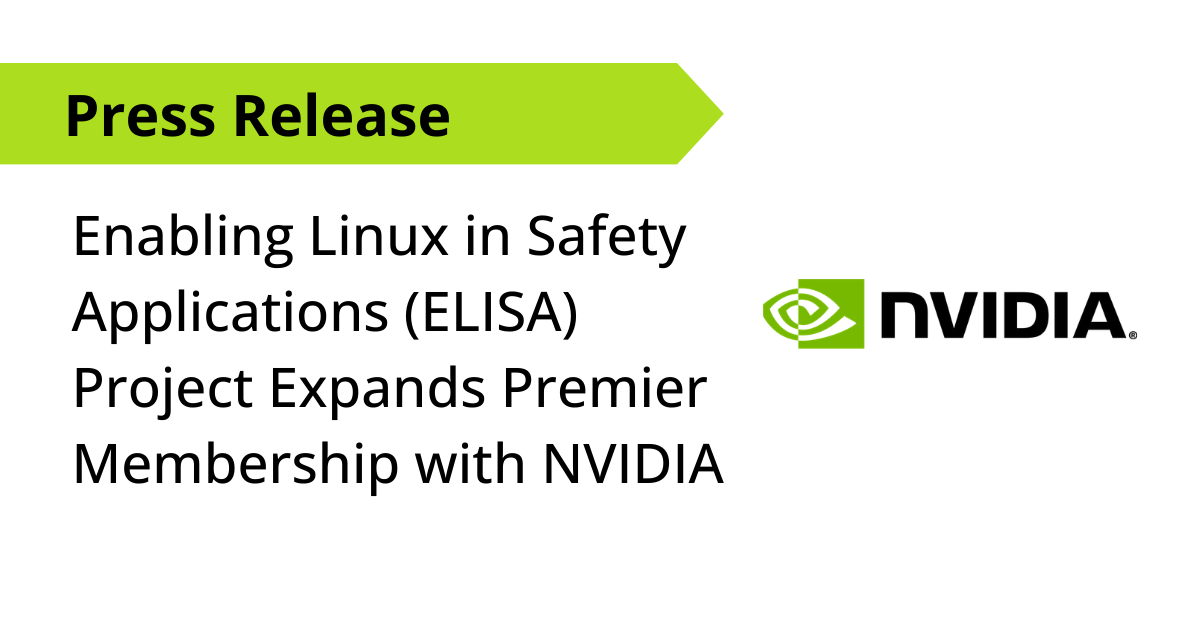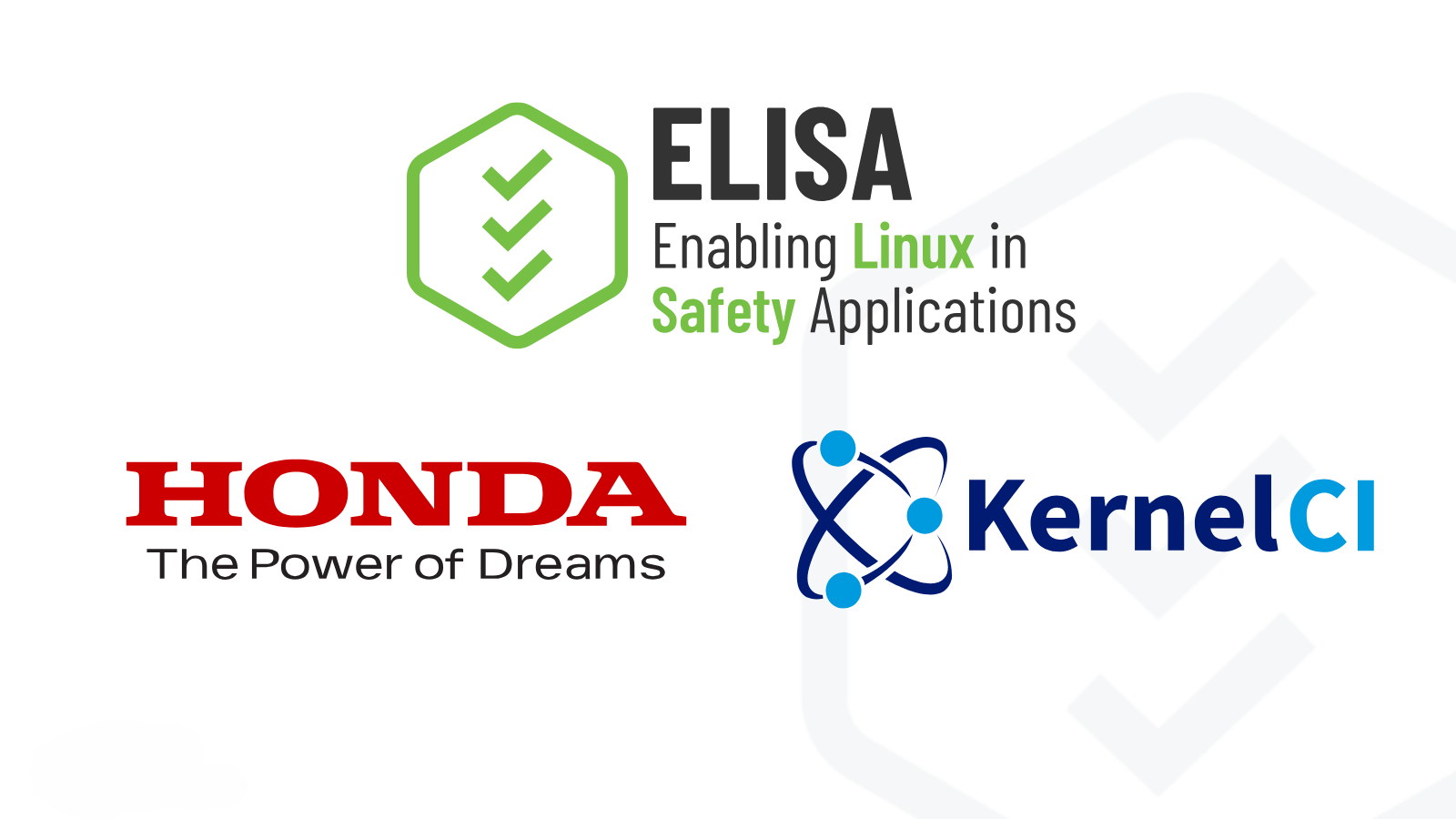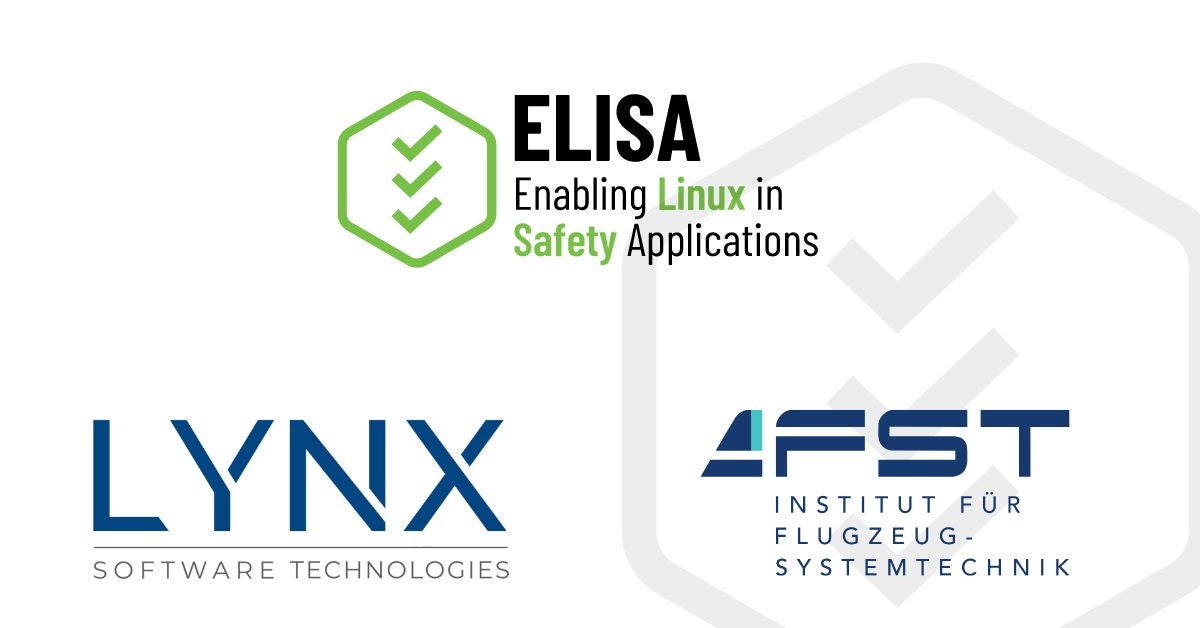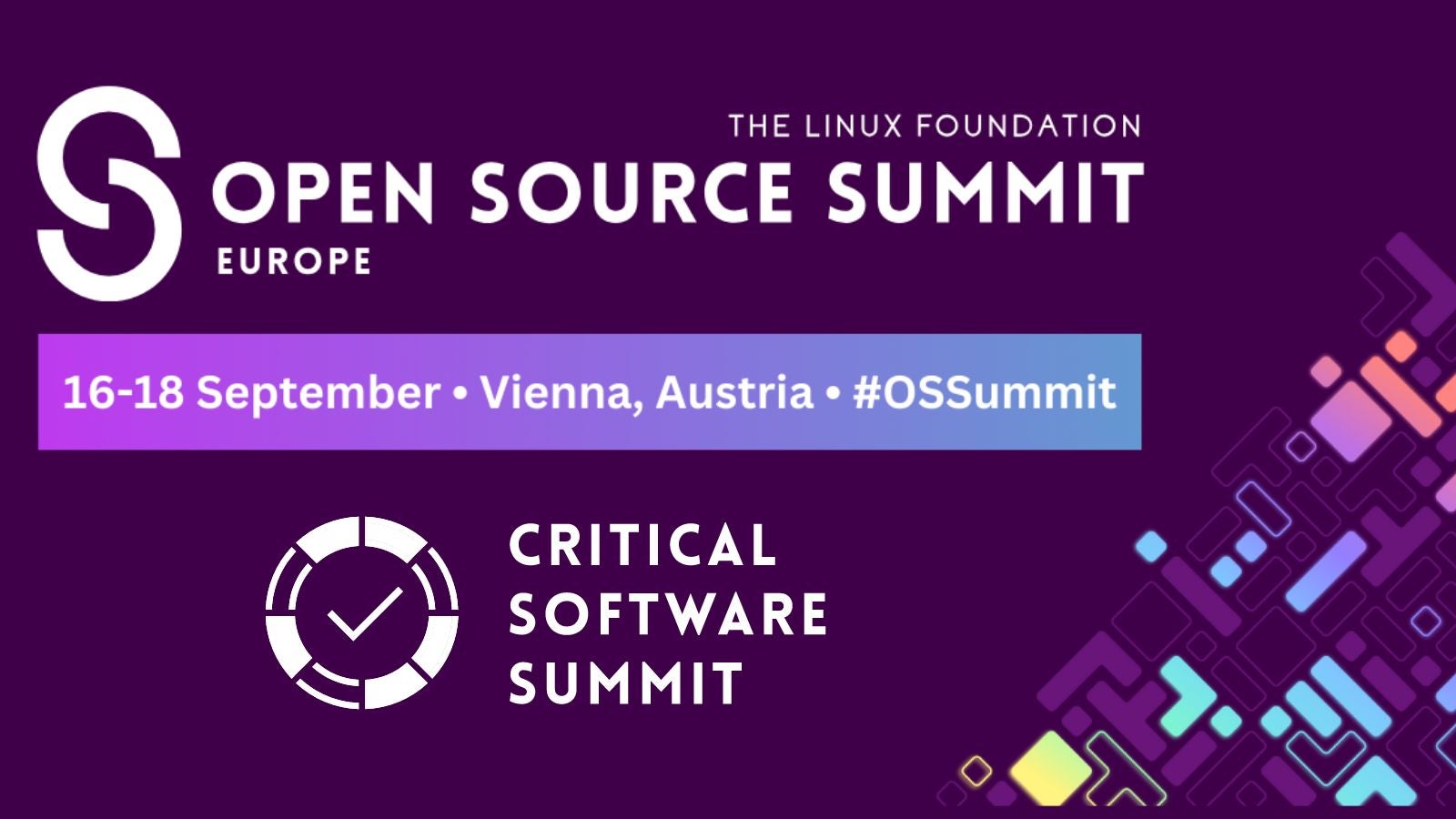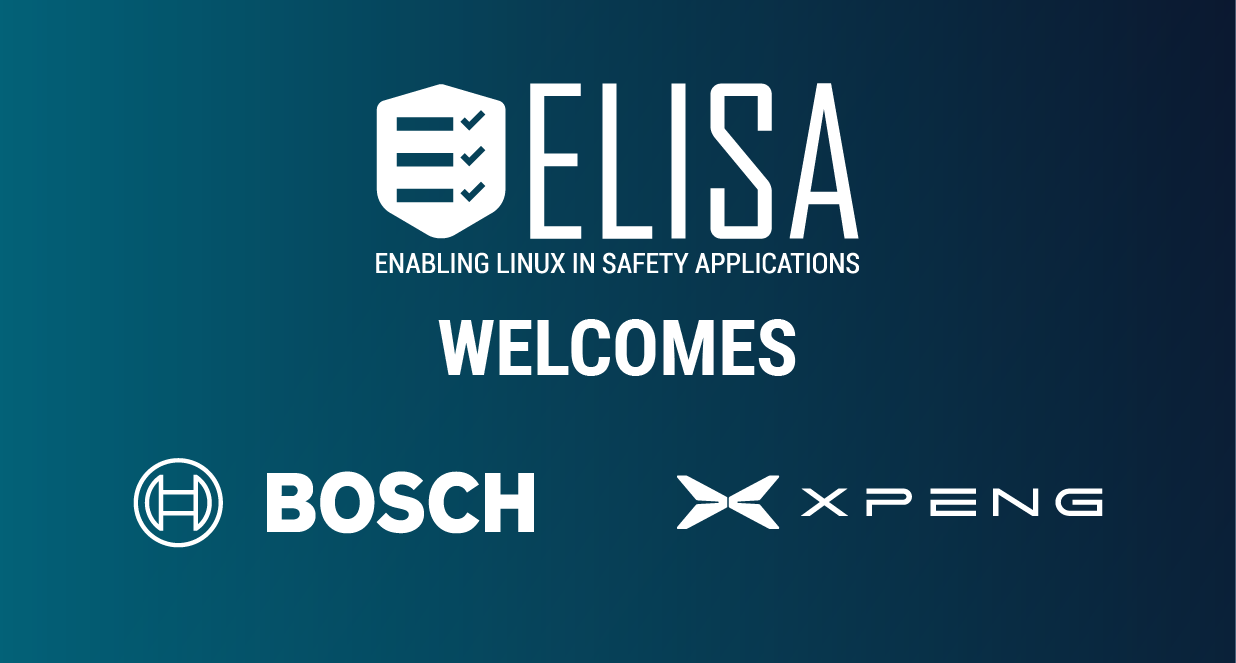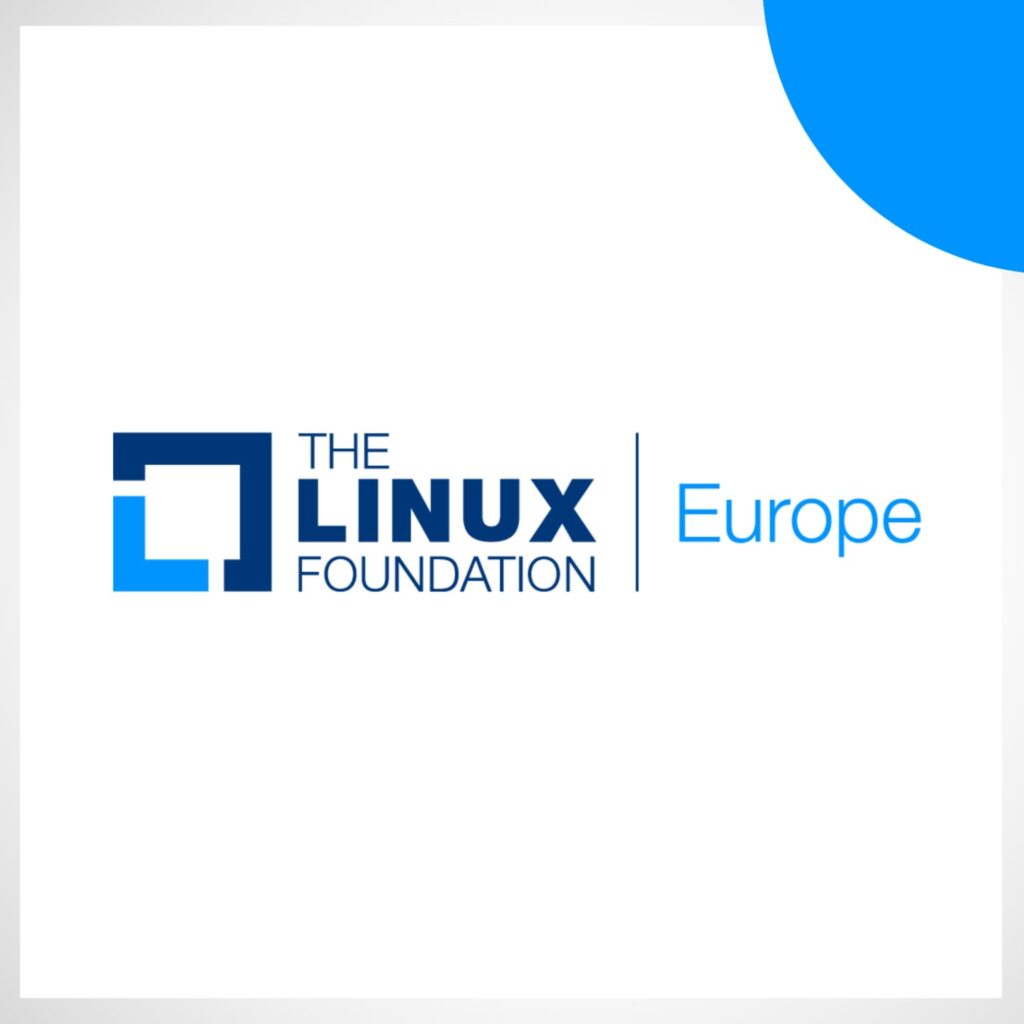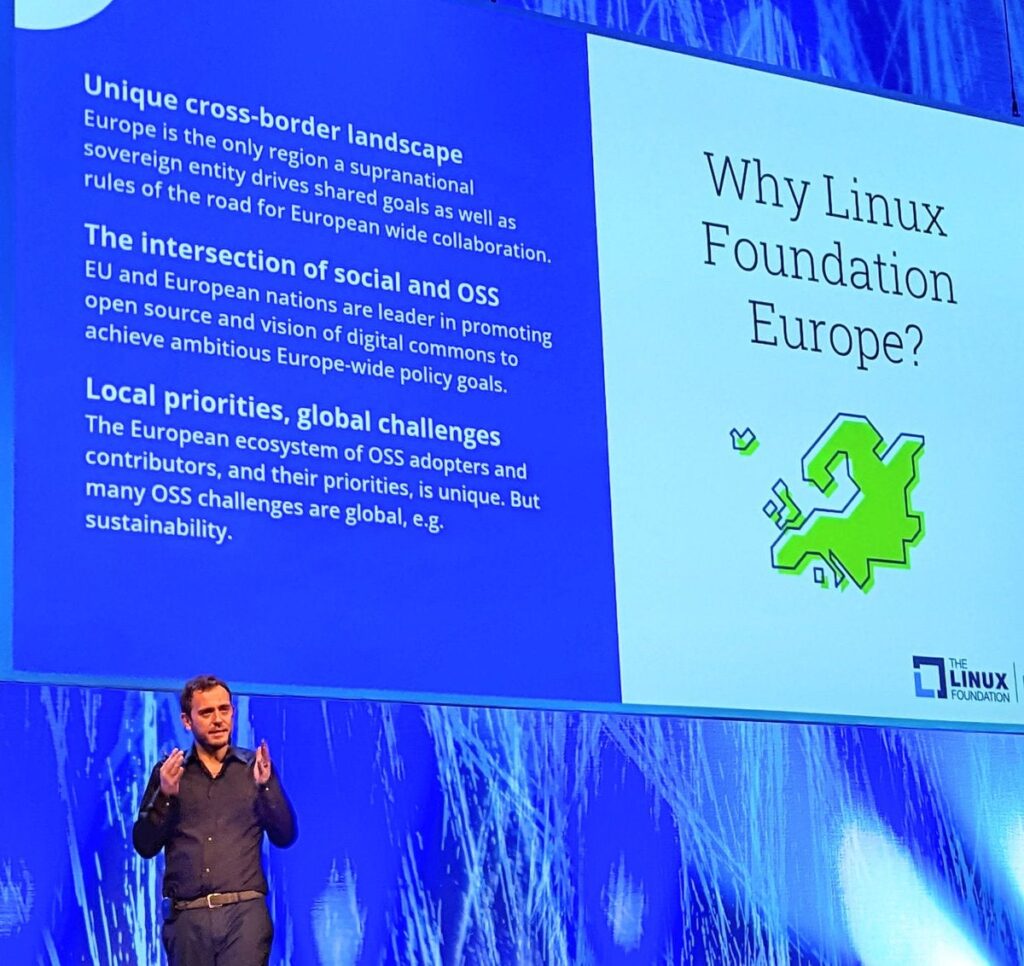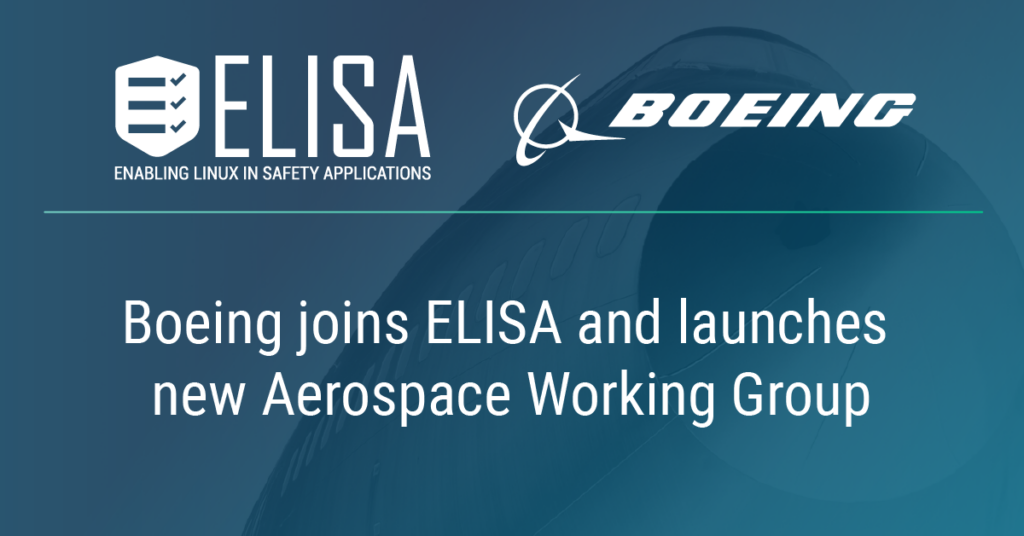SAN FRANCISCO – November 30, 2022 – Today, the ELISA (Enabling Linux in Safety Applications) Project announced that Robert Bosch GmbH and XPENG Motors have joined the project, marking its commitment to Linux and its effective use in safety-critical applications in connected cars. Hosted by the Linux Foundation, ELISA is an open source initiative that aims to create a shared set of tools and processes to help companies build and certify Linux-based safety-critical applications and systems.
Bosch is one of the world’s leading automotive suppliers. Bosch solutions combine automotive software know-how across all domains with expertise in electrical/electronic architecture of large integrated systems, complex real-time software, IoT, and automotive hardware. Their middleware offers functional safety, real-time behavior, and reliability under automotive requirements, combined with cyber-security. The Bosch experience and formal membership in ELISA fits well within the project goals and mission.
“Increasing product complexity and driving requirements in various areas of the software defined vehicle towards mixed-critical workloads requires thinking and going new ways to widen traditional approaches of systems engineering. Due to Bosch’s existing expertise in Linux and functional safety, the formal membership of Bosch within the ELISA project is a logical and consequent step,” said Philipp Ahmann, Business Development Manager – Embedded Open Source, Cross-Domain Computing Solutions at Robert Bosch GmbH. “The enthusiastic collaboration between functional safety experts combined with the recent excellent contributions from Linux experts are adding the value and momentum needed to enable Linux in safety applications and to make ELISA a success story.”
Earlier this month, Philipp Ahmann was nominated and elected as the new Chair of the ELISA Project Technical Steering Committee (TSC). He has been involved in the ELISA Project since May 2019 as an ambassador and member of the Technical Steering Committee (TSC) who has written blogs and given presentations in various Linux Foundation conferences and industry shows.
Philipp Ahmann steps into this role after TSC Chair Shuah Khan, Linux Fellow and Kernel Maintainer at The Linux Foundation, who has helped build the technical governance of the project and advance its mission and goals for more than two years. She will continue to contribute to the ELISA by helping Philipp Ahmann in his TSC role and supporting the working group leads.
“Philipp has made vast contributions during his time with the ELISA Project,” said Shuah Khan. “Since the day he joined the community, he’s been actively involved and has led the Automotive Working Group to real-world use cases like tell tales. His leadership will play an important role in setting up priorities and in providing guidance to the project. We are very excited about this next step in our evolution as an open source project setting the standard for safety-critical applications.”
Linux is used in all major industries because it can enable faster time to market for new features and take advantage of the quality of the code development processes. Launched in February 2019, ELISA works with Linux kernel and safety communities to agree on what should be considered when Linux is used in safety-critical systems. The project has several dedicated working groups that focus on providing resources for system integrators to apply and use to analyze qualitatively and quantitatively on their systems.
ELISA is open to everyone. Anyone can develop and contribute code, get elected to the Technical Steering Committee, or help steer the project forward in any number of ways.
Developers who are elected to the Technical Steering Committee or who participate as project leaders will provide leadership regarding the technical direction.
XPENG Motors, a leading Chinese smart EV company with hubs in China, the United States, and Europe, was founded in 2014 with a belief that technology is bound to transform the future of mobility.
“We are a technology company at heart. By addressing the needs of our customers with our expertise, we can solve the complicated questions in unchartered territory,” said Yu Peng, Embedded Systems General Manager at XPENG Motors. “We recognize the crucial and diverse role mobility plays in people’s lives, and aspire to expand future mobility through intelligent revolution, from the road to the air.”
“We joined ELISA because we wanted to get more technology and experience in improving the functional safety and stability of Linux-based system software. Through communications and participation, we hope the ELISA Project helps us to make products safer and more reliable,” said Peng.
Other ELISA Project members include ADIT, AISIN AW CO., Arm, Automotive Grade Linux, Automotive Intelligence and Control of China, Banma, Boeing, BMW Car IT GmbH, Codethink, Elektrobit, Horizon Robotics, Huawei Technologies, Intel, Lotus Cars, Toyota, Kuka, Linuxtronix. Mentor, NVIDIA, SUSE, Suzuki, Wind River, OTH Regensburg, Toyota and ZTE.
ELISA Presentations
The ELISA Project will be represented at Open Source Summit Japan, hosted on December 5-6 in Yokohama, Japan, and virtually. Kate Stewart, Vice President of Dependable Embedded Systems at The Linux Foundation, will give a keynote address titled “Japan’s Critical Infrastructure – Open Source Evolution,” on Tuesday, December 6 that will feature ELISA and a few other open source projects. On Wednesday, December 7, there will be an ELISA Mini-Summit that will offer a deep dive into the mission of the project and activities of the various working groups. There is a $10 fee when adding the ELISA Summit to the Open Source Summit Japan registration. Learn more about the conference or register here.
Other presentations this year include:
- ELISA Summit – Hosted virtually on September 7-8, this event included speakers from Aptiv Services Deutschland GmbH, Boeing, CodeThink, The Linux Foundation, Mobileye, Red Hat and Robert Bosch GmbH. Watch the videos here.
- Open Source Summit Europe – Hosted in-person in Dublin on September 13-16, ELISA had two dedicated presentations about enabling safety in safety-critical applications and safety and open source software. Watch the videos here.
For more information about ELISA, visit https://elisa.tech/.
About the Linux Foundation
Founded in 2000, the Linux Foundation and its projects are supported by more than 3,000 members. The Linux Foundation is the world’s leading home for collaboration on open source software, hardware, standards, and data. Linux Foundation projects are critical to the world’s infrastructure including Linux, Kubernetes, Node.js, ONAP, Hyperledger, RISC-V, PyTorch, and more. The Linux Foundation’s methodology focuses on leveraging best practices and addressing the needs of contributors, users, and solution providers to create sustainable models for open collaboration. For more information, please visit us at linuxfoundation.org.
###
The Linux Foundation has registered trademarks and uses trademarks. For a list of trademarks of The Linux Foundation, please see our trademark usage page: https://www.linuxfoundation.org/trademark-usage. Linux is a registered trademark of Linus Torvalds.
